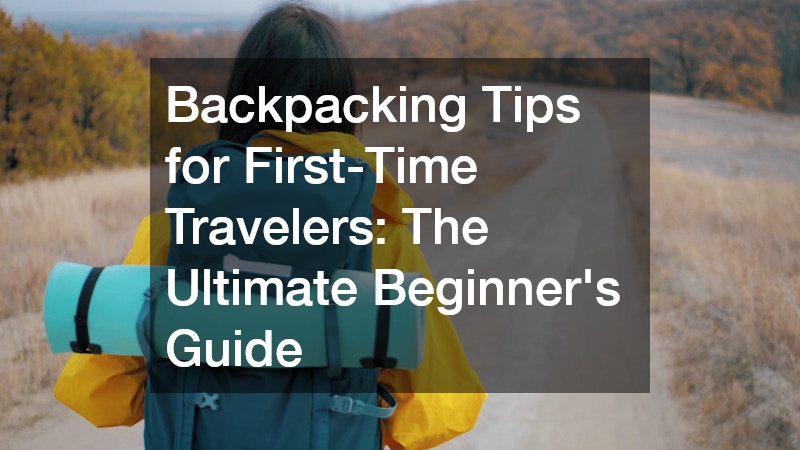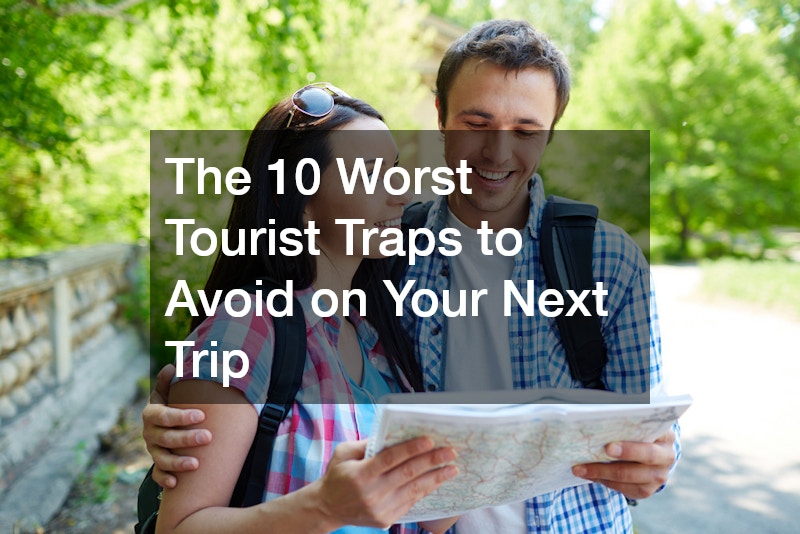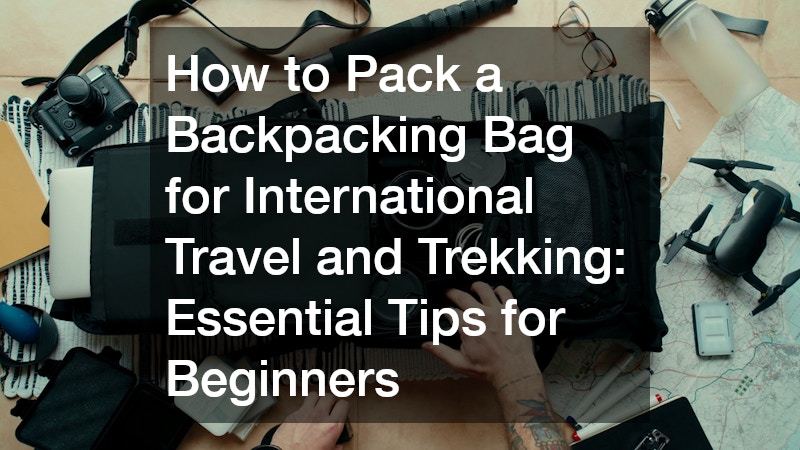
Backpacking is more than a travel style—it’s a lifestyle of exploration, freedom, and self-reliance. For those looking to travel on a budget while experiencing the world more intimately, backpacking offers unforgettable opportunities. Whether you’re planning a weekend hike or a six-month international journey, being prepared can make all the difference.
This guide is packed with essential backpacking tips that cover packing strategies, travel safety, nutrition, permits, insurance, and the top beginner-friendly backpacking destinations. Whether you’re a travel enthusiast ready to hit the road or someone considering your first trip, this guide will help you backpack smarter and safer.
What Should You Pack? Smart Packing Tips for Backpackers
Packing efficiently is crucial for any backpacker. The goal is to strike a balance between minimalism and preparedness. Bringing too much weighs you down, while packing too little can leave you unprepared in remote or unfamiliar places.
Start with the right backpack. A 40–60L backpack is ideal for most trips—big enough to fit essentials but small enough to prevent overpacking. Consider one with front-loading zippers, padded straps, and a waterproof cover.
Packing essentials:
- Clothing: Opt for moisture-wicking, quick-dry materials. Pack 2–3 sets of clothes, one weatherproof jacket, and appropriate footwear.
- Toiletries: Travel-sized toothbrush, toothpaste, biodegradable soap, and wet wipes.
- Tech: Power bank, universal adapter, and your phone with offline maps.
- First aid kit: Include plasters, antiseptic wipes, painkillers, and any necessary prescription medication.
- Extras: A travel towel, flashlight/headlamp, water bottle with filter, and a multitool.
Packing tips:
- Roll your clothes to save space and reduce wrinkles.
- Use packing cubes to stay organized.
- Keep valuables in a money belt or neck pouch.
What Should You Eat on the Go? Nutrition Tips for Backpackers
Maintaining good nutrition while traveling light is often overlooked. However, eating right can fuel your journey, prevent illness, and keep you energized throughout your adventure.
When backpacking, you may not always have access to full meals. It’s essential to carry nutrient-dense, portable snacks and understand how to balance your diet while on the move.
Easy-to-carry snacks:
- Trail mix with nuts and dried fruits
- Granola bars or energy bars
- Instant oatmeal or soup packets
- Peanut butter and crackers
- Dehydrated meals (lightweight and filling)
Nutrition tips:
- Stay hydrated—always carry a reusable water bottle.
- Eat a balanced mix of carbs, protein, and fats.
- Use local markets to find fresh fruits and vegetables.
- Limit street food unless it’s hot and freshly cooked.
In countries with different water standards, avoid raw vegetables or tap water unless treated.
Do You Need Travel Permits and Insurance? What You Must Know
When venturing into new countries or even national parks, failing to secure the right permits or insurance can lead to fines, denied entry, or worse—being stranded without support during an emergency.
Permits:
Many regions, especially protected natural areas, require backpackers to secure a permit. For example:
- The Inca Trail in Peru allows only a limited number of hikers per day and requires advance booking.
- U.S. National Parks often require wilderness permits for overnight stays.
- In Southeast Asia, some islands or nature reserves have visitor caps and entrance permits.
Travel insurance:
Every backpacker should carry comprehensive travel insurance. Look for coverage that includes:
- Emergency medical care and evacuation
- Trip cancellations or delays
- Lost or stolen luggage
- Adventure sports and hiking coverage (if applicable)
Pro Tip: Make digital copies of all permits and insurance documents, and store them both online (e.g., in cloud storage) and offline.
Top Backpacking Destinations for Beginners
Starting with beginner-friendly destinations can ease the learning curve and help you build confidence. These locations offer relatively easy navigation, budget-friendliness, and a strong backpacking community.
1. Thailand
- Great public transportation and English signage
- Affordable accommodations and street food
- Friendly locals and other backpackers
2. Portugal
- Safe and scenic with incredible coastal trails
- Delicious food and cheap hostels
- English widely spoken
3. New Zealand
- World-class hiking trails (called “tramps”)
- Backpacker-friendly infrastructure
- Stunning natural landscapes
4. Costa Rica
- Biodiverse national parks and beaches
- A top destination for eco-tourism
- Lots of guided adventure options for beginners
5. Scotland
- The West Highland Way is perfect for novice long-distance hikers
- Public right-of-way laws allow wild camping
- Safe and relatively easy to navigate
Choosing a beginner-friendly destination means you’ll spend less time dealing with logistical nightmares and more time enjoying your journey.
Backpacking Tips for Safety and Security
Whether you’re trekking through remote mountains or exploring new cities, safety should always be top of mind. Fortunately, a little preparation goes a long way in reducing risks.
Before you go:
- Research local customs, scams, and safety advisories
- Share your itinerary with someone at home
- Know emergency contact numbers in your destination
While on the road:
- Always keep your passport, cash, and phone secure
- Avoid displaying expensive gear or jewelry
- Stay in well-reviewed hostels or guesthouses
- Trust your instincts—if something feels off, walk away
Solo travel tips:
- Avoid isolated areas at night
- Check in regularly with friends or family
- Join group tours or stay in communal hostels to meet fellow travelers
Having a basic first aid kit, offline maps, and a small emergency whistle can make a big difference in case of an emergency.
Backpacking Tips That Will Save You Time and Stress
Being prepared makes your backpacking experience smoother and more enjoyable. Here are more essential backpacking tips to keep in mind during your journey:
Travel smart:
- Learn a few phrases in the local language
- Carry a small notebook for important info
- Use Google Maps offline or Maps.me
Save money:
- Travel during shoulder seasons for lower prices
- Use apps like Rome2Rio or Skyscanner to find the best transport deals
- Cook your own meals occasionally in the hostel kitchens
Stay connected:
- Get a local SIM card or travel Wi-Fi
- Use VPNs on public Wi-Fi for added security
Eco-friendly tips:
- Avoid single-use plastics—bring your own utensils and bag
- Respect wildlife and stay on marked trails
- Support local businesses and avoid unethical tours
Small steps can enhance your experience while respecting the environment and communities you visit.
How Can You Manage Your Budget While Backpacking?
One of the biggest challenges for backpackers is managing money on the road. Budgeting wisely not only extends your trip but also reduces stress and allows you to enjoy your journey more fully. Start by setting a daily spending limit based on your destination’s average costs for accommodation, food, and transportation. Keep track of your expenses in real-time using budgeting apps such as Trail Wallet or TravelSpend.
Look for ways to save without sacrificing experiences. Staying in hostels, couchsurfing, or camping can significantly cut lodging costs. Eating at local markets and street stalls is cheaper and often tastier than tourist restaurants. When booking transport, consider slower but cheaper options like buses or trains instead of flights. Also, plan some free or low-cost activities such as hiking, museum visits on free days, or city walking tours. Smart budgeting keeps your adventure sustainable and fun.
What are Essential Backpacking Skills to Learn?
Before you hit the trail, learning some essential backpacking skills can make your trip safer and more enjoyable. Basic navigation skills—using a map and compass or GPS—are vital, especially when traveling in remote areas without clear signage. Practicing how to read weather patterns and adjust plans accordingly can protect you from unexpected storms or harsh conditions.
Campcraft skills such as setting up a tent, building a campfire safely, and understanding Leave No Trace principles help you minimize your environmental impact. Additionally, knowing how to treat minor injuries, purify water, and pack a first aid kit is crucial for emergencies. Even simple skills like efficiently packing your backpack, repairing gear, or cooking over a portable stove improve your experience. Invest time in practicing these skills before your trip; it boosts confidence and self-reliance on the road.
How Can You Stay Connected Without Overspending?
Staying connected while backpacking is important for safety, navigation, and keeping in touch with loved ones. However, international roaming charges and Wi-Fi costs can quickly add up. To avoid overspending, invest in a local SIM card once you arrive at your destination. Many countries have affordable prepaid options with data plans tailored for travelers.
Alternatively, portable travel Wi-Fi devices provide reliable internet access without the hassle of switching SIM cards, especially if you visit multiple countries. Download useful offline apps like maps, translators, and travel guides before you leave. Public Wi-Fi is abundant in cafes and hostels, but always use a VPN to protect your data from cyber threats. With these tips, you can stay connected, share your experiences, and access emergency services without breaking your budget.
What are Common Backpacking Challenges and How to Overcome Them?
Backpacking comes with its unique set of challenges, especially for beginners. One common issue is dealing with homesickness or loneliness while traveling solo. Joining group tours or staying in social hostels helps you meet fellow travelers and build camaraderie. Another challenge is managing fatigue or injuries from carrying a heavy backpack or long hikes; pacing yourself and taking regular breaks prevents burnout.
Language barriers can complicate navigation and social interactions. Learning basic phrases or using translation apps eases communication. Sometimes plans change due to weather, transport delays, or closed trails—having a flexible mindset and backup plans is key. Finally, unpredictable costs or lost belongings can cause stress. Carrying emergency cash, keeping digital backups of documents, and having travel insurance mitigate these issues. Preparation and adaptability turn challenges into memorable travel stories.
Final Thoughts: Your Adventure Awaits
Backpacking is a deeply rewarding way to explore the world. It teaches self-reliance, offers a sense of freedom, and connects you to diverse cultures in a way traditional travel rarely does. But preparation is key.
From understanding what to pack and eat to securing proper permits and insurance, taking the time to prepare can mean the difference between a trip full of stress and one full of awe-inspiring memories.
Start with beginner-friendly destinations, pack light, stay safe, and remain open to the unknown. Whether you’re trekking through rainforests, hitching a ride to a hidden beach town, or meeting fellow travelers at a hostel, you’ll find that the world is full of adventure—and it’s yours to discover.




